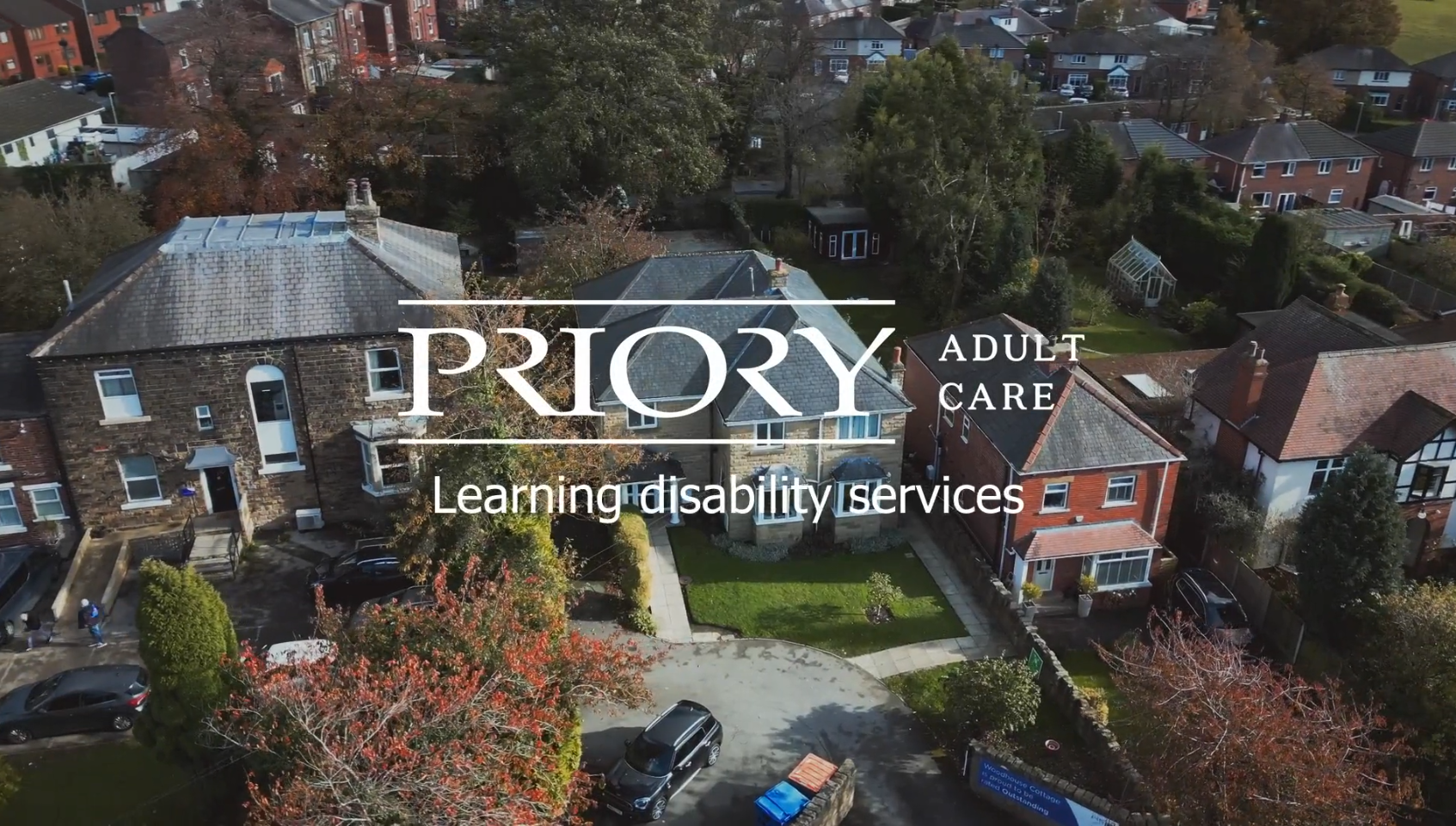About this location
Eastleigh House is located in the quiet seaside town of Teignmouth in South Devon. Our service offers residential support for up to eight individuals who are autistic, have a learning disability and/or mental health needs, who may also require support with communication difficulties and behaviours of concern.
The home is located in a quiet residential area, 10 minutes from the town centre and the seafront. Our trained and specialist staff provide support to help each resident improve their quality of life, as well as their health and wellbeing.
The approach we take is person-centred and we use positive behaviour support (PBS), focusing on building positive outcomes for our residents and helping them to live a fulfilled life.
Services at a glance
There are a total of eight bedrooms at the site. Of these:
Click here to enable this content
About our service
Our facilities and environment
Eastleigh House is a large, detached, Victorian building, offering incredible views overlooking the estuary. We offer eight bedrooms across two floors, including two on the ground floor.
In summary, we offer:
- Lounge
- Kitchen and dining room
- Activities room
- Quiet room
- Utility room
- Communal bathroom
- Communal wet room
We also have a large garden, complete with:
- Secure fencing
- Lawn
- Patio
- Seating area
- Summer house
- Swing
- Shelter
- Wheelchair access
- Sensory garden
- Vegetable patch
- Football goal
- Basketball hoop
Our bedrooms
All of our bedrooms are comfortable, welcoming and can be personalised to individual tastes. Our self-contained flat has its own bathroom, lounge and activities of daily living (ADL) kitchenette. All other bedrooms have their own en-suite facilities with a shower.
Our approach to support
Everyone who lives at Eastleigh House has their own person-centred care plan, which is co-produced with input from the individual, their family members and professionals involved in their care. We aim to help everyone in our care to make their own choices about the support they receive. This may include support in a number of areas, such as daily living skills, community inclusion, health and medication needs, maintaining and building relationships with family and friends, and personal care including continence care.
Our team are dedicated to providing the people we care for with positive and proactive outcomes, with the aim of reducing the restrictions they face and helping them to improve their quality of life. Our support approaches at Eastleigh House include:
- PBS
- Sensory diet support
- Active support
In addition, we use tools such as the Outcomes Star™ to support our residents to achieve their goals. The lengths of the placements that we offer at Eastleigh House can be medium or long-term residential, depending on the needs of each person.
Activities
Everyone who lives at Eastleigh House has their own personalised activities planner and are encouraged to take part in activities which are meaningful and fulfilling to them. Our dedicated team organise a variety of activities at the home, as well as out in the community.
We focus on supporting our residents to grow their independence. For some people, this may mean developing their daily living skills within the home. For others, this could be accessing work or educational opportunities in the local community.
Pathways
Our team
Our highly experienced team consists of:
- Service manager
- Deputy manager
- Support worker
- PBS practitioner
- Housekeeper
- Chef
Our team receives specialist staff training, which is bespoke and tailored to meet the needs of each person we support.
Family and friends FAQs
How does home leave work?
We support our residents to attend family events and visit their family homes. We will work with the resident and their relatives to ensure possible risks are managed and that everyone is supported. This may mean the individual’s key worker will come along on the visit.
Can friends and families visit?
Family and friends are welcome to visit and participate in activities at the home.
Will I be involved and kept up to date with the progress of my loved one’s care and support?
Yes, we strive to keep the loved ones of our residents involved in their care at every stage. Eastleigh House uses Nourish, a care management system that allows family to view notes and support plans. We can also arrange more regular catch-ups, either in person or via telephone, to ensure that families are kept informed.
Will my loved one be able to have a phone or call me?
We promote maintaining relationships with loved ones and support communication via the telephone, Teams, mobile phones and video calls. In addition, we can support our residents to get their own mobile phone, where appropriate.
What are the bedrooms like?
Bedrooms are all furnished, and residents are supported to personalise them to suit their needs and wishes. Some of the furniture has been purchased to suit the needs of the service specification and some of it is fitted, and therefore cannot be removed.
Are external doors kept locked?
Yes, due to the nature of the service, external doors are locked. However, every resident will be risk assessed which will detail the level of security needed. We have a large garden area and staff can support residents to exit and enter the building accordingly.
What do residents eat and how do meal times work?
Eastleigh House has its own dedicated chef who cooks meals chosen by the people we support, and it is prepared and cooked whenever they wish. We encourage residents to participate in daily living and cooking skills, where possible. Staff will, however, support residents with any problems or concerns around mealtimes, such as preparation. Our team will also seek guidance from family members, speech and language therapy (SaLT), and nutritionists to ensure that special dietary requirements are catered for.
How does laundry work?
Laundry is completed by the staff and housekeeping.
Who does the housekeeping and domiciliary tasks?
Household chores are completed by our housekeeping team, although residents are encouraged to get involved, to support with their daily living skills.
Is there anything residents cannot have or bring?
Residents are not allowed to bring illegal substances onto the premises. We would also ask that people do not bring high risk personal items into the house. We may place restrictions on some items where the risks cannot be appropriately managed, such as non-approved drugs and medications, solvent-based products and lighters.
How do activities work?
Every resident has a tailored activities planner. This will include both in-house activities as well as visits into the community. Their key worker may use a variety of communication tools to ensure the resident can have an input into the planning of activities.
How will residents be supported with their behavioural needs?
We use the PROACT-SCIPr-UK® framework, which means we focus on proactive strategies, rather than physical intervention. We require our care plans which include restrictions to be assessed frequently, for example procedures for interventions such as pro re nata (PRN) medication are regularly reviewed and removed, where possible.
Do residents and families have an input into the care plans?
We work with social workers, family members and residents to develop care plans which are in the best interests of our residents. We use a variety of communication tools and work with health professionals to aid each resident in having a say about every aspect of their care. Care plans are regularly reviewed, and family members will be asked for their input in this process.
What are the car parking facilities?
There are four parking spaces located at the front of the home. Parking spaces are also available at the bottom of the drive on a privately owned road.
What is the smoking policy?
Smoking is permitted in our designated smoking area. Staff will support individuals to buy vapes and cigarettes, if needed.
What are your fees and how are they funded?
Our fees can vary and are based on an assessment of each individual's needs. Many people are eligible for financial help towards the cost of support, and this funding can be accessed by contacting your local authority. Once funding has been agreed, we will work with your local care team to put together a bespoke package of care. Please note, referrals for NHS or Local Authority funded services must come from a referring organisation.
How to make a referral
Our service provides high quality support to people with varying levels of need. Referrals can be made through the individual’s social care team or, if relevant, their local health authority. If you are a professional looking to make a referral, please call us or fill in our enquiry form.





